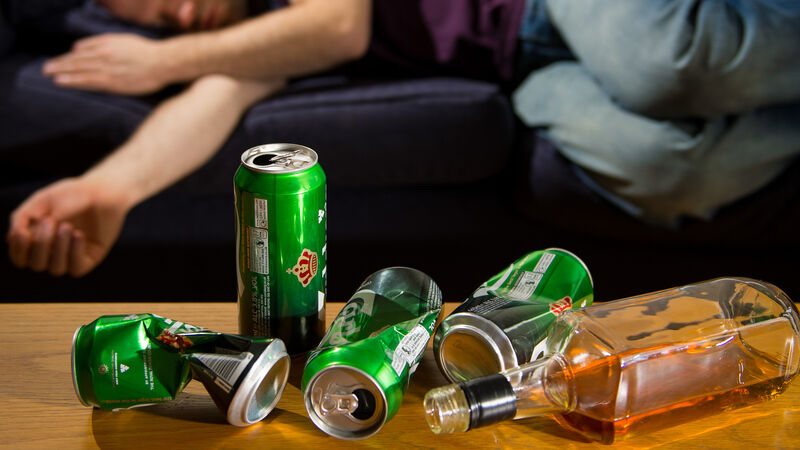'Alcohol can exacerbate underlying mental health issues': Alcohol use linked to suicide and self-harm, studies find

ALMOST half of people who died by suicide in Cork had alcohol in their system at the time, a newly published report by the Health Research Board shows.
ALMOST half of people who died by suicide in Cork had alcohol in their system at the time, a newly published report by the Health Research Board shows.
The report, titled ‘Alcohol: availability, affordability, related harm, and policy in Ireland’, published yesterday, looks at the link between suicide and alcohol. It found that younger people who took their own life were more likely to have alcohol in their system.
The study showed that — of people who took their own lives in Cork for whom toxicology reports are available — 50.8% of people under 25 years, 48% of those aged 25 to 54, and 24.1% of those aged 55 or over had alcohol in their system.
One person affected by the issue, who wished to remain anonymous, told : “In the end, my breaking point was something very small, but I had been drinking for days and was beginning to sober up and everything I had to do that day just seemed impossible.
“I hadn’t felt happiness when I was sober in a long time, so I didn’t want to live without alcohol, but I knew it couldn’t go on like this much longer either, I knew that there was even more pain in the future if I did,” they said.
“Luckily, I did not succeed in taking my own life, and it served as something of a wake-up call, though I had a difficult few months still to face after that, I emerged from it and haven’t had a drink in over a year.
“The dark thoughts went away when I stopped drinking, I haven’t thought about suicide once since getting sober, and before it was a constant thought, it was always in the back of my head as a last resort in case things got too bad, it was almost comforting.
The report by the Health Research Board cites a study which examined 307 cases of suicide that had occurred in Cork, where toxicology was available for 298 of the 307 cases.
In 141 of those cases, alcohol was detected in the toxicology, with young people far more likely to have consumed alcohol prior to their deaths.
The study showed that among the 298 cases, 50.8% of people under 25 years, 48% of people aged between 25 and 54, and 24.1% of those aged 55 or over had alcohol in their system.
It also showed that where the information was available, a history of alcohol or other drug abuse was noted in 61% of the suicide cases.
Mick Devine – Clinical Director of Tabor Group, who oversees two alcohol treatment centres in Cork, told : "Studies have shown that individuals struggling with alcohol abuse or dependence are at a significantly higher risk of suicidal thoughts and behaviours compared to the general population.
"It's important to note that while alcohol can significantly elevate the risk of suicidal ideation and attempts, not everyone who struggles with alcohol use will experience suicidal thoughts.
"However, addressing alcohol misuse is crucial in suicide prevention efforts, as reducing alcohol consumption can alleviate some of the risk factors associated with suicidal behaviour and improve overall mental health and well-being."
A link between alcohol and self-harm was also found in another study on Cork in the same report, which examined 8,145 cases of emergency department presentations of self-harm in the county.
It found that “alcohol was involved in 21% of the self-harm presentations, although the study authors noted an under-recording of alcohol use in case notes”, meaning that the figure is potentially higher.
“Alcohol is a depressogen; it causes chemical changes in the brain and can lead to anger, depression, or anxiety.
“It also affects the brain by slowing down the processing of information, making it more difficult to make logical decisions.”










 App?
App?


